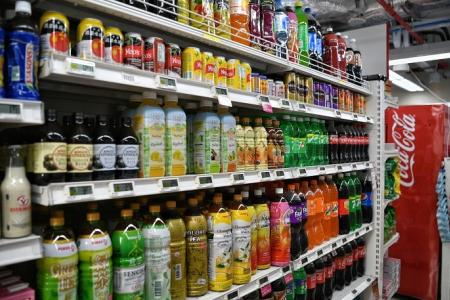Drink container return scheme not anti-competitive: Watchdog
A consortium set up by three beverage firms to run a beverage container return scheme is not anti-competitive, Singapore’s competition watchdog said on Jan 3.
The companies – Coca-Cola Singapore Beverages, F&N Foods and Pokka – sought guidance from the Competition and Consumer Commission of Singapore (CCCS) on whether the joint establishment and operation of the Beverage Container Return Scheme (BCRS) Ltd infringes the Competition Act, said the watchdog.
In response to queries, CCCS said this is the first application it has received from firms seeking guidance to jointly meet environmental sustainability goals since a guidance note on such collaborations was issued in March 2024.
CCCS said on Jan 3 that the joint establishment and operation of BCRS is unlikely to infringe the Competition Act.
In the guidance note on how businesses can collaborate to meet sustainability goals, CCCS said a collaboration that restricts competition will still be in compliance with the law if it leads to economic benefits, such as lower costs, among other criteria.
The note gives more clarity to companies on how to pursue business collaborations without harming competition while supporting Singapore’s environmental sustainability goals.
CCCS said BCRS is unlikely to infringe sections 34 and 47 of the Competition Act. Section 34 prohibits tie-ups that prevent, restrict or distort competition within any market in Singapore, while Section 47 prohibits the abuse of a dominant market position.
The Straits Times previously reported that, in a public consultation on the scheme in September 2022, some respondents were concerned about producers passing on the scheme’s costs to consumers, causing beverage prices to rise.
The National Environment Agency (NEA) had then said the cost pass-through to consumers in beverage prices, if any, will likely be moderated by price competition among industry players along the value chain.
When asked about how the collaboration of the three companies will not distort price signals, CCCS said: “In assessing the collaboration, CCCS considered, among other things, the measures to limit the sharing of commercially sensitive information between beverage producers, the not-for-profit corporate structure of the scheme operator and regulatory oversight over the scheme operator.”
BCRS, a not-for-profit enterprise, will design and operate the container return scheme, which is slated to launch on April 1, 2026, after several delays.
Under the scheme, consumers will pay an extra 10 cents for bottled and canned drinks ranging from 150ml to 3 litres, but will receive a full refund of the deposit when they return the empty containers at designated return points.
The notice of guidance comes after CCCS’ advice to NEA on how NEA can mitigate potential competition concerns when developing the scheme.
CCCS chief executive Alvin Koh said: “CCCS is supportive of Singapore’s environmental sustainability goals while ensuring fair competition in our markets. Our streamlined process, with defined timeframes, allows for quicker decision-making without compromising thorough assessment.
“We encourage businesses to engage us early with complete information so that CCCS can respond promptly on whether their environmental sustainability initiatives comply with the Competition Act.”
NEA said in 2020 that the return scheme for drink containers would be implemented by 2022. But, that year, NEA said the scheme’s proposed start date would be by mid-2024.
In July 2024, it was reported that the scheme was delayed again until April 2026 at the request of beverage producers, as they needed more time to adjust to the changes.
BCRS, which received its licence to operate from NEA in July 2024, will collect, sort and recycle drink containers, set up return points and ensure that stakeholder fees are fair and transparent.
It will also provide the start-up capital to run the scheme and maintain sufficient reserves to cover its operations.
The scheme will run for seven years until March 31, 2033, in line with the licensing validity period.
More than 1,000 return points will be located in supermarkets and other communal areas to make it convenient for the public to return the containers and facilitate a higher rate of return to boost recycling.
NEA aims to reach its target return rate of 80 per cent in 2029, the third year of the scheme.
This means that out of an estimated one billion drink containers released into the market annually, around 800 million will be returned for recycling.
Get The New Paper on your phone with the free TNP app. Download from the Apple App Store or Google Play Store now


